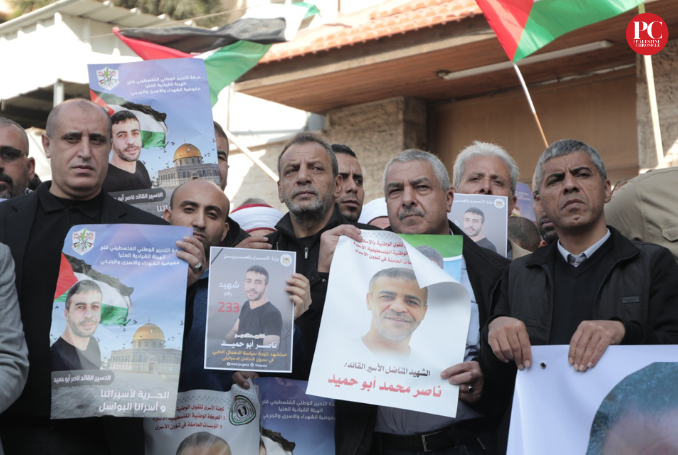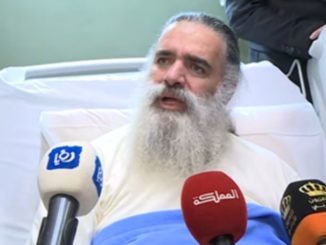
Israeli Defense Minister Benny Gantz ruled on Wednesday that his government will withhold the body of Palestinian prisoner Nasser Abu Hamid, who died of cancer early on Tuesday in an Israeli prison, The New Arab reported.
Abu Hamid, who was diagnosed with lung cancer last August, was transferred on Monday from the Ramle clinic prison, where he has been kept, to a hospital in Israel, where he entered into a coma, before being pronounced dead.
Abu Hamid was born in the Nuseirat refugee camp in Gaza. His family later relocated to the Amari refugee camp near Ramallah, in the occupied West Bank.
Hours after news of Abu Hamid’s death spread, hundreds of Palestinians gathered at Ramallah’s main Lions’ Square, before marching towards the Amari refugee camp.
Abu Hamid was given seven life sentences in 2002 after he co-founded Fatah’s armed wing during the second Intifada, the Al-Aqsa Martyrs’ Brigades.
Masked gunmen from the Al-Aqsa Martyrs’ Brigades appeared among the crowd of mourners on Tuesday, saluting Abu Hamid by firing shots into the air. The gunmen read a statement, in which they pledged revenge for his death.
Gantz’s decision follows a decades-long Israeli policy of withholding the bodies of Palestinian detainees.
It was interrupted at the end of the second Palestinian Intifada in 2005 but the policy was resumed in 2015.
Israel has withheld the bodies of around 118 Palestinians since 2015, which includes 11 Palestinian prisoners after Nasser Abu Hmeid’s death.
(PC, The New Arab, SOCIAL)








Of course you fail to tell the whole story.
Israel will hold onto the body of Nasser Abu Hamid, one of the founders of Fatah’s al-Aqsa Martyrs Brigade, as part of efforts to negotiate a deal with Hamas, Defense Minister Benny Gantz announced on Wednesday morning.
The deal Gantz is hoping to achieve would return captured Israelis Avera Mengistu and Hisham al-Sayed, who have been held in Gaza since 2014 and 2015 respectively. It would also see the return of the bodies of Lt. Hadar Goldin and Sgt. Oron Shaul who were killed during Operation Protective Edge in 2014.
Gantz said that his decision was simply following protocol already approved by the security cabinet.